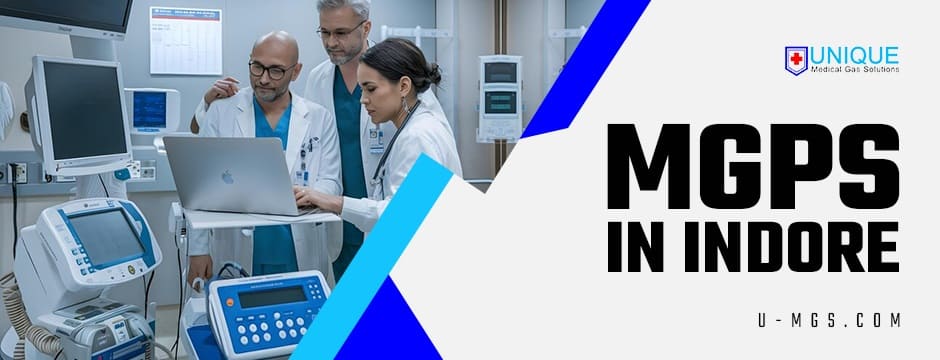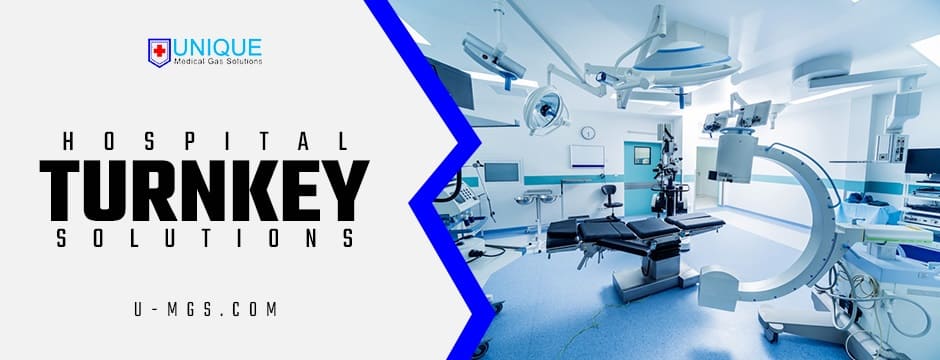As the healthcare landscape in Indore continues to develop and improve, the need for a properly working Medical Gas Pipeline System (MGPS) is increasingly important for hospitals. The level of reliability and design of this system can ultimately impact patient safety, the efficiency of clinical practices, and overall healthcare standards. As a tier-II city that is quickly becoming a medical destination in Central India, Indore currently has an influx of multispecialty hospitals and diagnostic centres. As this city continues to grow, the focus on proper, standards-adhering MGPS installations will be increasingly important. Properly designed systems can have a problematic outcome. For example, poorly designed systems may lead to leaks, gas failure, or contamination affecting patients, staff, and therapists. As a result, the most important challenge for any healthcare establishment planning an MGPS in Indore is thorough planning, adherence to both their systems design, such as HTM 02-01.

Adherence to Guidelines, Standards & Codes
The first and foremost design consideration of any MGPS is adherence to the safety and performance standards. While Hospitals in Indore will be working primarily to national standards (IS 7396), they should also take into account standards from around the world, e.g., HTM 02-01 (UK). In design and construction, compliance will ensure:
- Correct gas segregation
- Standard colour coding and labelling
- Safe features such as alarms, pressure regulators and zone valves
Failure to comply with standards can lead to statutory and legal issues and, more importantly, potentially lead to loss of life.
Comprehensive Site & Demand Assessments
A comprehensive site assessment and forecast of actual medical gas demand at the facility being designed, should be in place before confirming an MGPS design. Hospitals in Indore usually operate with multiple departments and fluctuating patient demand, which means MGPS must be scalable and adaptable.
- Evaluating peak flow requirements for gases.
- Planning for the future to mitigate the issues associated with retrofitting.
- Keeping in mind, department-specific requirements, e.g., higher oxygen requirement in an intensive care unit (ICU) or surgical gases in the theatre suite.
Designing a Central Plant and Manifold Room
Placement and layout of the central gas plant or manifold room are critical. It must be readily accessible for routine servicing and maintenance, but located in a remote area to avoid contamination and security issues. Key design considerations would include:
- Adequate ventilation
- Temperature management
- Explosion-proof lighting and switches
- Proper signage and restricted access
For oxygen concentrator-based systems, hospitals must make certain they have a backup power infrastructure in place.
Pipeline Layout and Material Selection
The material used—typically copper—is non-reactive and corrosion-resistant. For Indore hospitals, especially those in humid or chemically exposed environments, high-grade copper with proper insulation is recommended.
Other layout considerations for MGPS in Indore include:
- Minimising bends and joints to reduce pressure drops
- Loop or ring layouts for larger facilities to ensure alternate gas supply paths
- Isolation valves for sectional maintenance without full system shutdown
Safety Alarms and Zone Valve Boxes
MGPS systems must include alarm panels and zone valve boxes at strategic locations:
- Alarm panels should display pressure changes, gas failures, or emergency shutdowns.
- Zone valve boxes allow isolation of specific areas (e.g., OTs, ICU) during maintenance or emergencies.
Indore hospitals must ensure these are installed in easily accessible yet secure locations, with proper labelling and user training for staff.
Patient Bedside Outlets and User Accessibility
Designing ergonomic, easy-to-use medical gas outlets at the patient bedside is crucial for operational efficiency and patient comfort.
Considerations include:
- Standardised terminal units compatible with various medical devices
- Flush-mounted outlets for aesthetic and hygiene benefits
- Clear labelling to avoid gas misconnection
- Flowmeters and humidifiers integrated with outlets for bedside oxygen delivery
Design should also factor in pediatric and bariatric patient requirements, ensuring adaptability and flexibility in patient rooms.
Emergency Preparedness and Backup Systems
MGPS must be designed with contingencies for emergencies, especially given Indore’s growing population and demand for critical care facilities. Backup systems may include:
- Dual manifold systems with automatic changeover
- Emergency oxygen cylinders for critical zones
- Alarm escalation hierarchy to alert relevant teams instantly
Fire safety and earthquake resilience must also be integrated into the MGPS design.
Integration with Hospital Information Systems (HIS)
Modern hospitals are increasingly becoming smart and digital. Integrating hospital turnkey solutions monitoring with the central hospital management system enhances situational awareness.
- Real-time gas usage tracking
- Predictive maintenance alerts
- Remote alarm monitoring
- Data logs for compliance audits
For new hospital projects in Indore, investing in MGPS systems that can interface with digital infrastructure is a forward-thinking move.

Training and SOP Development
Even a well-designed MGPS system can become a liability if hospital staff aren’t trained. Training sessions must be conducted post-installation to educate doctors, nurses, and technicians on:
- Gas identification and safety
- Emergency shutdown procedures
- Routine inspection checklists
Standard Operating Procedures (SOPs) must be documented and reviewed periodically.
Environmental and Local Considerations
Indore’s climate, pollution levels, and urban infrastructure can influence MGPS design:
- Adequate pipeline insulation to withstand temperature fluctuations
- Contamination control in areas near industrial zones
- Earthquake-resilient supports and fixings
Moreover, green hospitals should consider systems with minimal carbon footprints, such as onsite oxygen generation plants that reduce cylinder transportation needs.
Bottom Line
Designing an MGPS in Indore for hospitals demands a holistic approach—merging engineering excellence with clinical insight and compliance protocols. From ensuring uninterrupted patient care to future-proofing hospital infrastructure, each design detail plays a critical role. Hospitals looking for a trusted MGPS solution provider in Indore can rely on Unique Medical Gas Solutions. With extensive experience in medical gas systems and a reputation for safety, reliability, and compliance, we offer end-to-end solutions including system design, installation, commissioning, and training. Whether you are upgrading an existing setup or planning a new hospital project, we ensure that your MGPS meets the highest standards of quality and performance, helping Indore’s healthcare institutions save lives, one breath at a time.




No comment